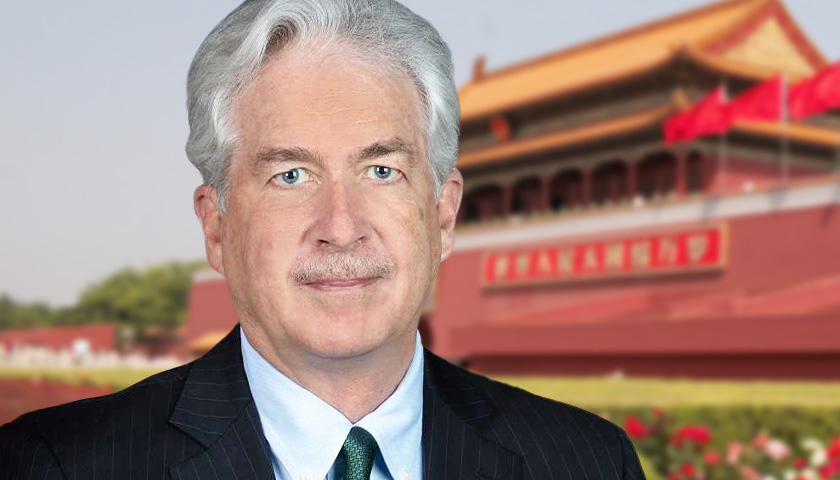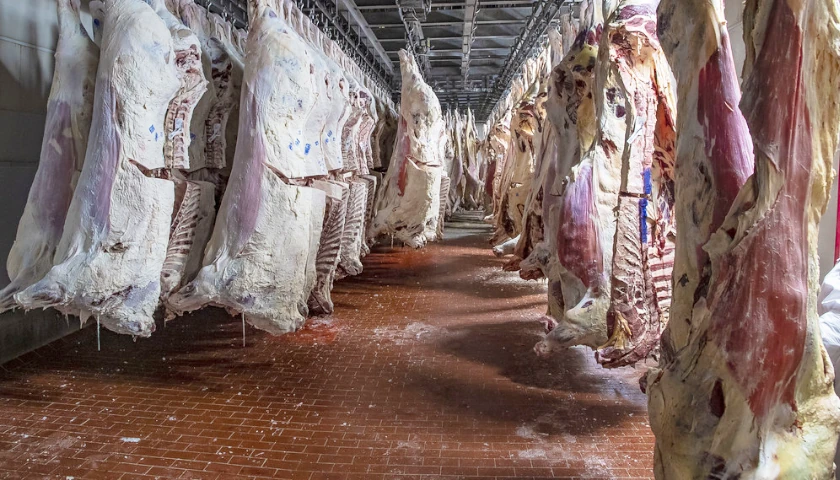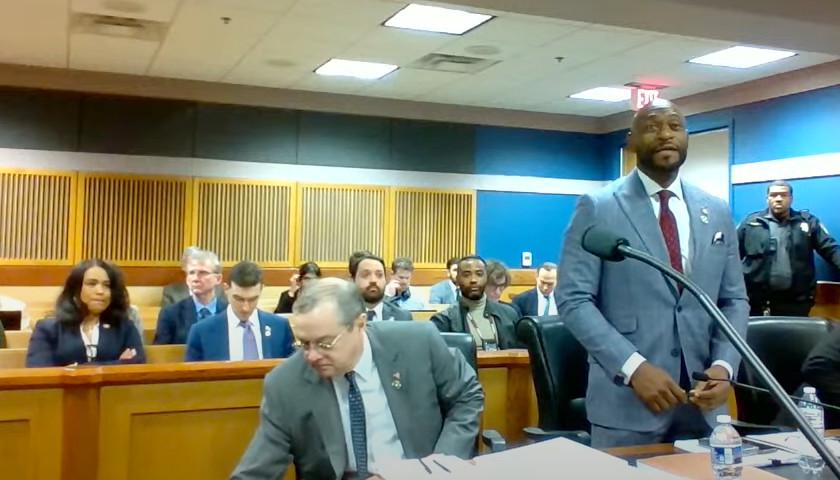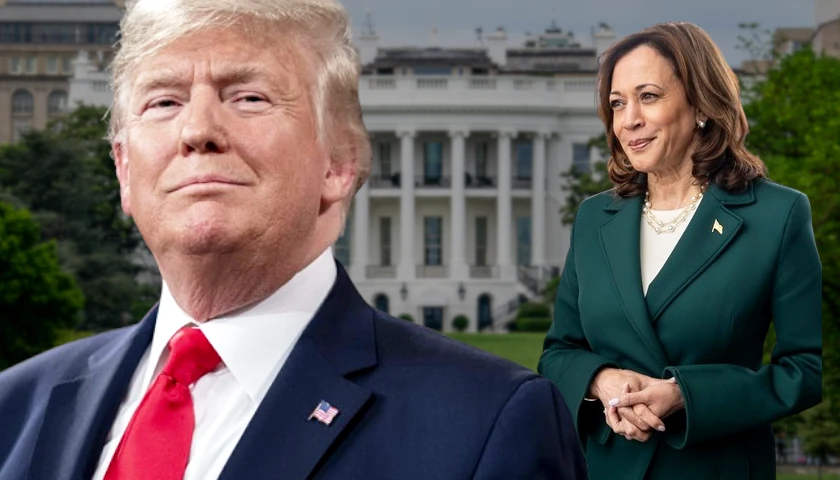by Philip Lenczycki
An elite Washington, D.C., think tank has employed individuals who’ve worked for front groups controlled by Chinese spy agencies, a Daily Caller News Foundation investigation found.
The Carnegie Endowment for International Peace has employed over a dozen individuals who’ve worked in a range of capacities at China-based nonprofits set up or co-opted by Chinese intelligence agencies, including the Ministry of State Security (MSS) and the intel arm of the People’s Liberation Army.
These individuals have served as experts in various policy areas, including international relations, American politics and nuclear policy while working at both the think tank’s D.C. headquarters and at its Tsinghua University center in Beijing. Moreover, not only did Carnegie employ the majority of these experts while current CIA Director William Burns was president of the think tank, but, according to the nonprofit’s current records, Carnegie still employs individuals working for Chinese intelligence front groups.
 Carnegie, the CIA and Director Burns did not respond to multiple requests for comment from the DCNF.
Carnegie, the CIA and Director Burns did not respond to multiple requests for comment from the DCNF.
The DCNF was able to identify Carnegie staff who’ve worked for Chinese spy fronts by cross-referencing publicly available employment information with a new book on Chinese Communist Party (CCP) intel and influence operations written by Alex Joske, a former analyst at the Australian Strategic Policy Institute.
The book, called “Spies and Lies,” details Chinese intelligence agents’ efforts to infiltrate and influence Western institutions. Joske reveals a front set up by China’s version of the CIA began courting Carnegie in the early 2000s — a relationship the DCNF discovered has persisted to this day.
To be sure, Joske does not label any of the individuals who’ve worked for Chinese intelligence front groups prior to working for Carnegie as “spies.” Joske, however, does detail how Chinese Communist agents established various front groups with an eye toward attracting partnerships with Western think tanks.
Using tactics first deployed against George Soros’ China Fund in the late 1980s, Joske’s book details how China’s MSS set out to lure influential Western institutions with close government ties into partnerships with various Chinese nonprofits.
“[The MSS] went after people’s best intentions towards China,” Joske told the DCNF. “There were plenty of people who believed in this vision of a more democratic and more open China and thought it was something that could be realized, even under the Chinese Communist Party.”
In February 2000, Zheng Bijian — an undercover asset working for the MSS, according to Joske — became chairman of a Chinese think tank, the China Reform Forum (CRF). “Spies and Lies” details how just four years later CRF had persuaded Carnegie to launch a joint China program in 2004.
“The MSS — clearly through the China Reform Forum in particular — homed in on think tanks as a weak point in our system and as a real way to get in and influence U.S. policy,” Joske told the DCNF.
China’s MSS sought to transform Carnegie and related U.S. institutions into vehicles of CCP influence in order to convince policymakers that “tougher U.S. policies towards China” would only “empower hardliners to move China further away from democracy,” Joske said.
While Carnegie’s program with CRF wound down sometime before 2010, the D.C. think tank continued to employ individuals who worked for CRF and related groups Joske and other intelligence analysts have identified as spy fronts. These individuals included CRF’s director, Ding Xueliang, who worked as Carnegie’s Beijing joint program coordinator.
Carnegie also retained a climate expert from the CRF program named Zhou Dadi, who went on to serve as vice chairman of the China Institute for Innovation and Development Strategy (CIIDS), which Joske’s book notes was also founded by CRF’s undercover MSS asset, Zheng Bijian.
Although Ding Xueliang and Zhou Dadi no longer work for Carnegie, several experts who’ve worked for Chinese intelligence fronts remain at the think tank; Yan Xuetong, an expert on U.S.-China relations, is one of these experts. In addition to being an acclaimed “outstanding CCP member,” Yan Xuetong has also worked for at least four Chinese intelligence fronts, including another MSS front called the China Institutes of Contemporary International Relations (CICIR).
Likewise, Carnegie still employs another U.S.-China relations expert and CCP member, Zhou Qi, who has also worked for several MSS fronts including CRF and the China Institute of International Studies (CIIS). Zhou Qi’s father is reportedly a vice minister of intelligence in the People’s Republic of China (PRC) and her ex-husband, Wang Huning, recently became a CCP Politburo Standing Committee member in October.
Again, there is no evidence the Carnegie staffers who’ve worked for Chinese intelligence fronts identified in Joske’s book, or by other analysts, are themselves spies or involved in espionage.
Even still, Steve Yates, former deputy national security adviser to former Vice President Dick Cheney, told the DCNF that out of an abundance of caution, nonprofits which operate closely with the U.S. government should not employ individuals who’ve worked for China’s so-called “think tanks.”
“China policy experts for decades have spoken of the intelligence, military or diplomatic ties of various PRC ‘think tanks’ as a potential means to understand and influence their top leadership. In other words, these counter-intelligence realities were an open secret among government and non-government experts,” Yates said. “During periods of perceived benign U.S.-China engagement one might argue on behalf of the value of collaboration or dialogue with these well-connected experts, but not for employing them.”
“Anyone with a current or past security clearance would know this and any organization serving as home to former and future high-ranking U.S. appointees should guard against it,” Yates told the DCNF. “Failure or refusal to do so should be disqualifying for future service in a leadership position.”
Texas Republican Rep. Lance Gooden told the DCNF that, if proven true, it was concerning that most of the Carnegie experts in question worked for the nonprofit during current CIA Director William Burns’ tenure as president from February 2015 to November 2021.
“Carnegie’s ties to the CCP not only continued under Director Burns’ leadership, but they intensified,” Gooden told the DCNF.
Burns initially came under fire for Carnegie’s China ties during his February 2021 CIA confirmation hearing, when Florida Republican Sen. Marco Rubio pressed him about Carnegie’s relationship with a Chinese government-backed group called the China-United States Exchange Foundation (CUSEF).
“This is a relationship that I inherited when I became president of Carnegie and that I ended not long after I became president,” Burns told Rubio during the hearing.
However, the DCNF soon discovered that Carnegie’s relationship with CUSEF had actually endured for at least another two years after Burns became the nonprofit’s president in 2015.
More recently, the DCNF revealed in August that Carnegie had also employed at least 20 CCP members during Burns’ tenure, prompting several Republican congressmen to call on the Pentagon and related agencies to withhold taxpayer funding from the think tank.
Since then, the DCNF also found that the think tank had allowed former Chinese government personnel turned Carnegie experts — including at least one undisclosed CCP member — to work on Department of Defense grants concerning nuclear warfare during Burns’ presidency.
“The director must explain why he allowed our top adversary to infiltrate his organization, the extent of his interactions with potential Chinese spies, and most importantly, why he lied to the American people during his confirmation hearing,” Gooden told the DCNF.
– – –
Philip Lenczycki is a reporter at Daily Caller News Foundation.
Photo “William Burns” by Central Intelligence Agency. Background Photo “Beijing Forbidden City Entrance” by Trsqr. CC BY-SA 4.0.




